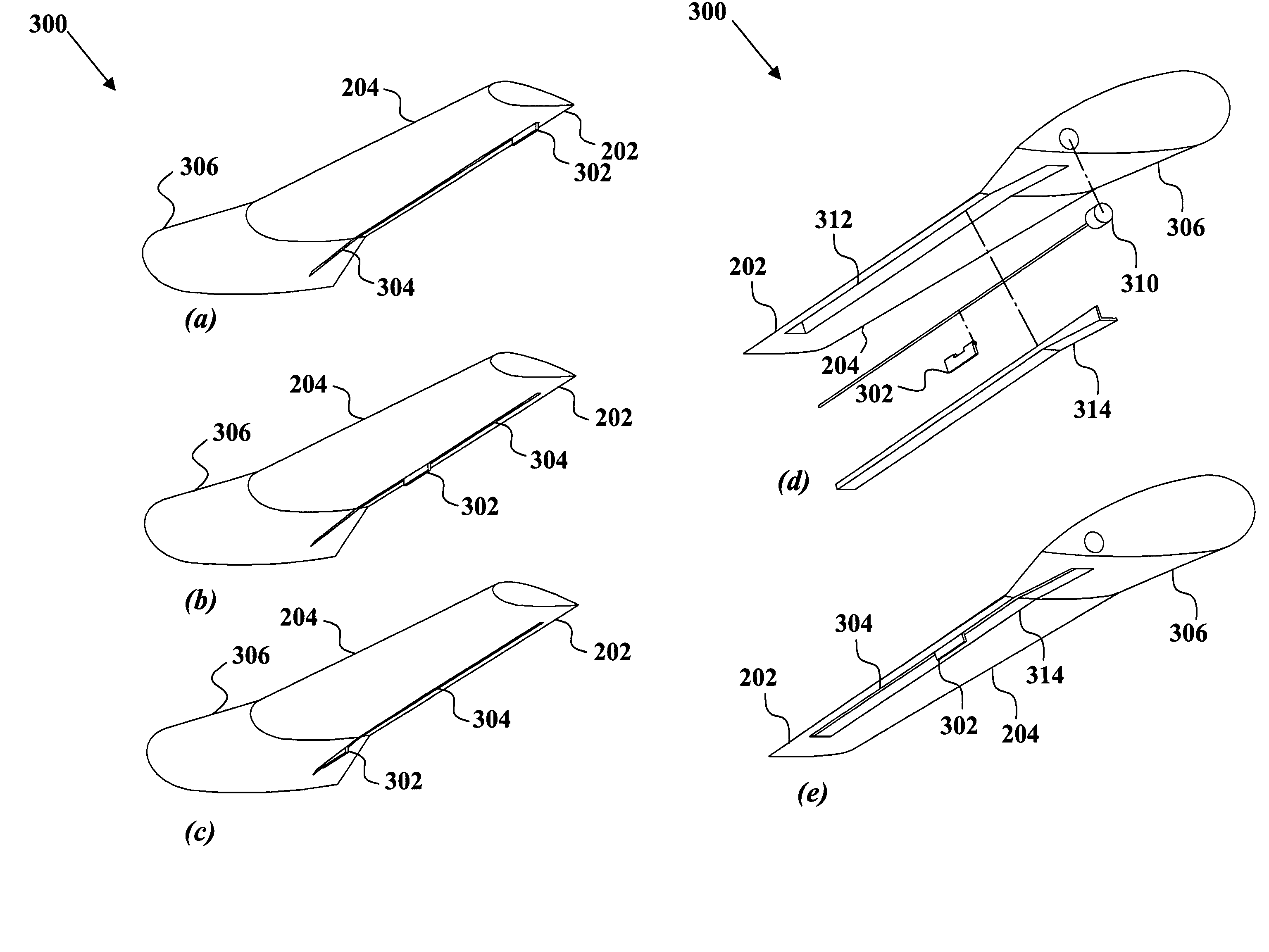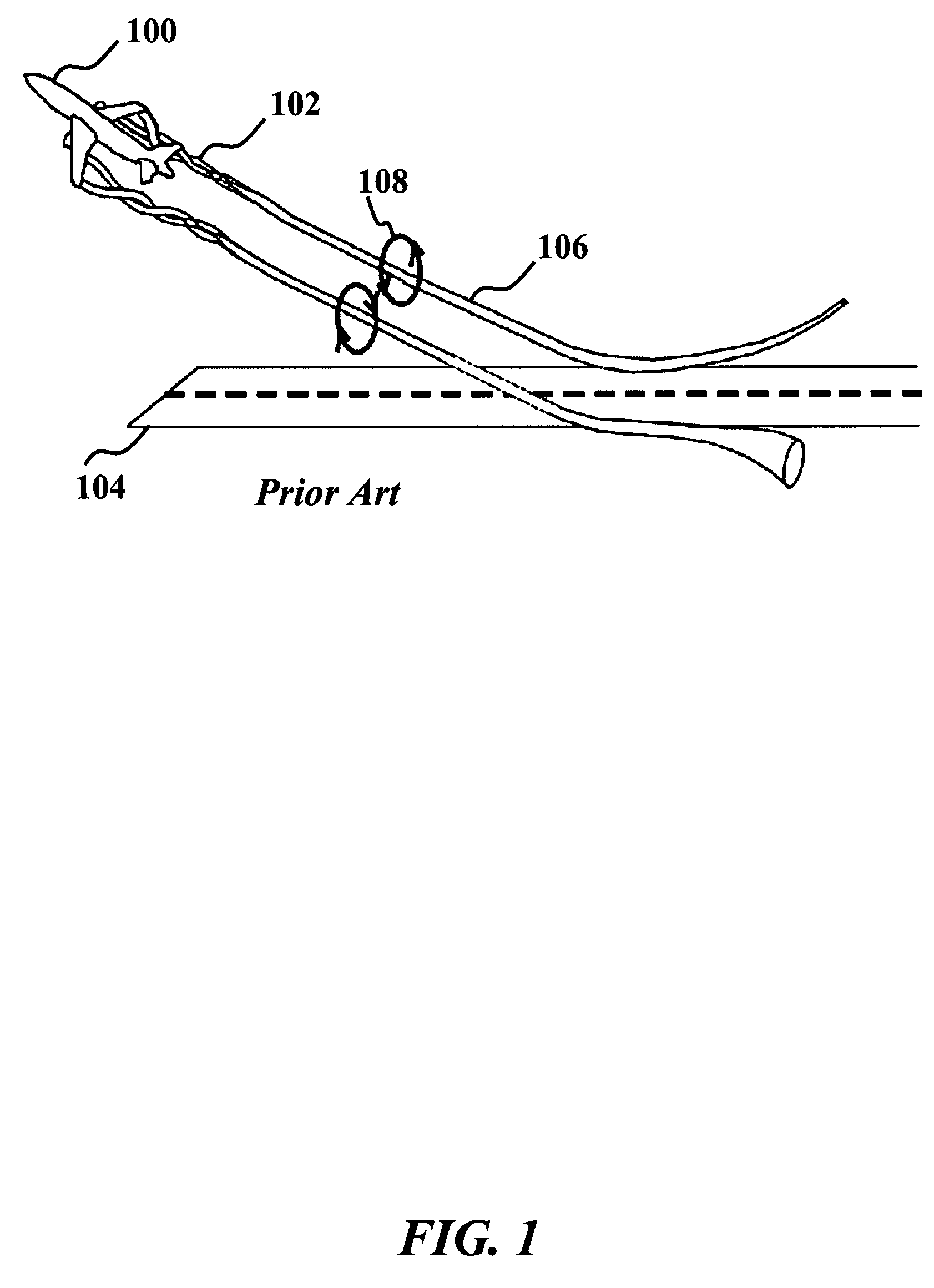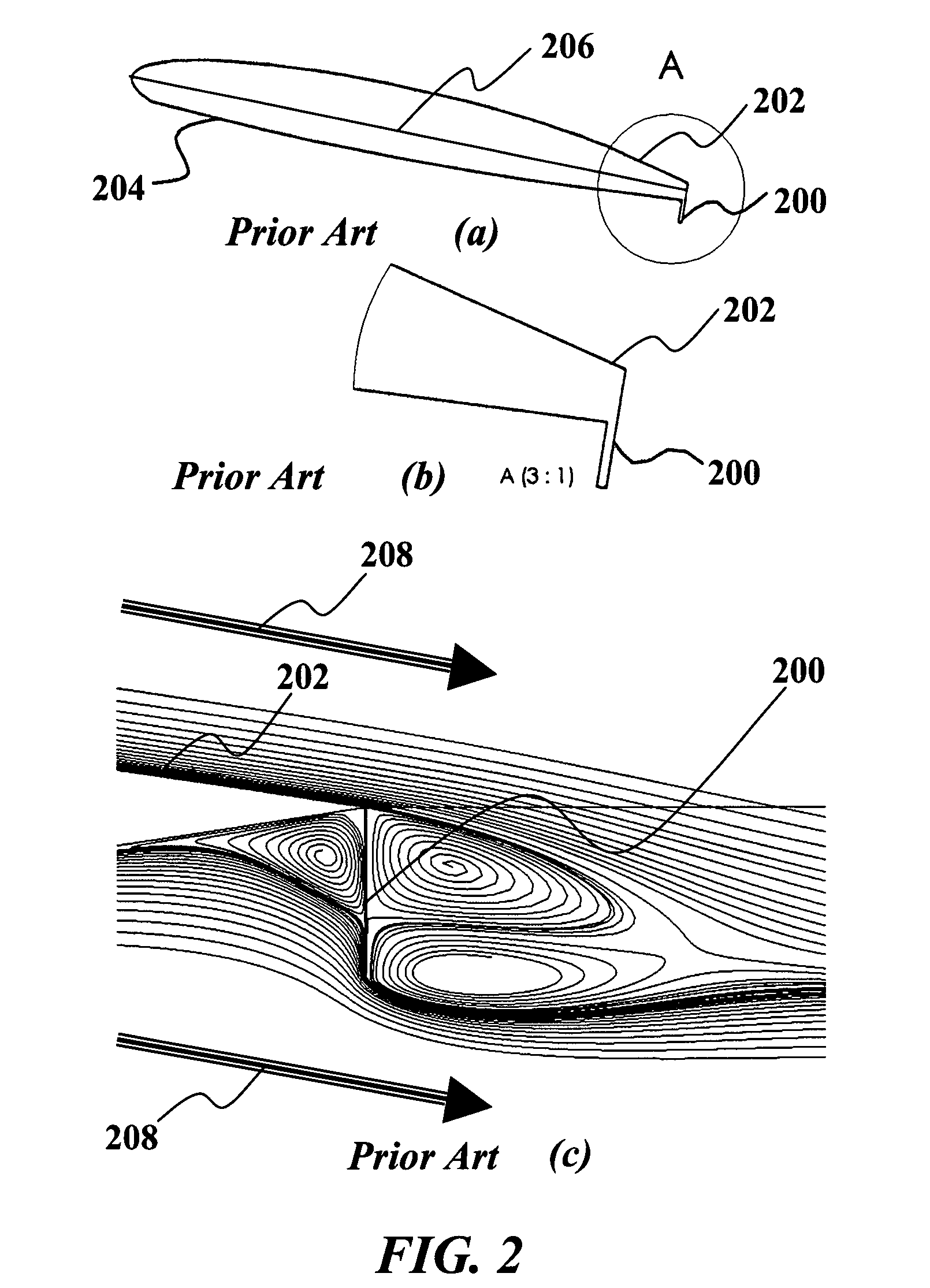Translating active Gurney flap to alleviate aircraft wake vortex hazard
a technology of active gurney and flap, which is applied in the field of active gurney flap, can solve the problems of limiting airport capacity, creating potential hazards for following aircraft, and affecting the ability of airports to cope with the effects of wake vortex hazards, so as to reduce the large longitudinal spacing, minimize wake vortex hazards, and improve airport capacity
- Summary
- Abstract
- Description
- Claims
- Application Information
AI Technical Summary
Benefits of technology
Problems solved by technology
Method used
Image
Examples
Embodiment Construction
[0030]Although the following detailed description contains many specifics for the purposes of illustration, anyone of ordinary skill in the art will readily appreciate that many variations and alterations to the following exemplary details are within the scope of the invention. Accordingly, the following preferred embodiment of the invention is set forth without any loss of generality to, and without imposing limitations upon, the claimed invention.
[0031]FIG. 1 shows a perspective view of a typical fixed-wing aircraft 100 generating a circulation 102 in the air flow in which it travels through as it lifts off from an airport runway 104. This circulation 102 results in discrete trailing vortices 106 that extend far behind the generating aircraft 100. For large aircraft 100, these trailing vortices 106 tend to be strong and persistent, such that they can pose a serious threat to any aircraft 100 that may encounter them. This problem is referred to as the wake vortex hazard, where the ...
PUM
 Login to View More
Login to View More Abstract
Description
Claims
Application Information
 Login to View More
Login to View More - R&D
- Intellectual Property
- Life Sciences
- Materials
- Tech Scout
- Unparalleled Data Quality
- Higher Quality Content
- 60% Fewer Hallucinations
Browse by: Latest US Patents, China's latest patents, Technical Efficacy Thesaurus, Application Domain, Technology Topic, Popular Technical Reports.
© 2025 PatSnap. All rights reserved.Legal|Privacy policy|Modern Slavery Act Transparency Statement|Sitemap|About US| Contact US: help@patsnap.com



